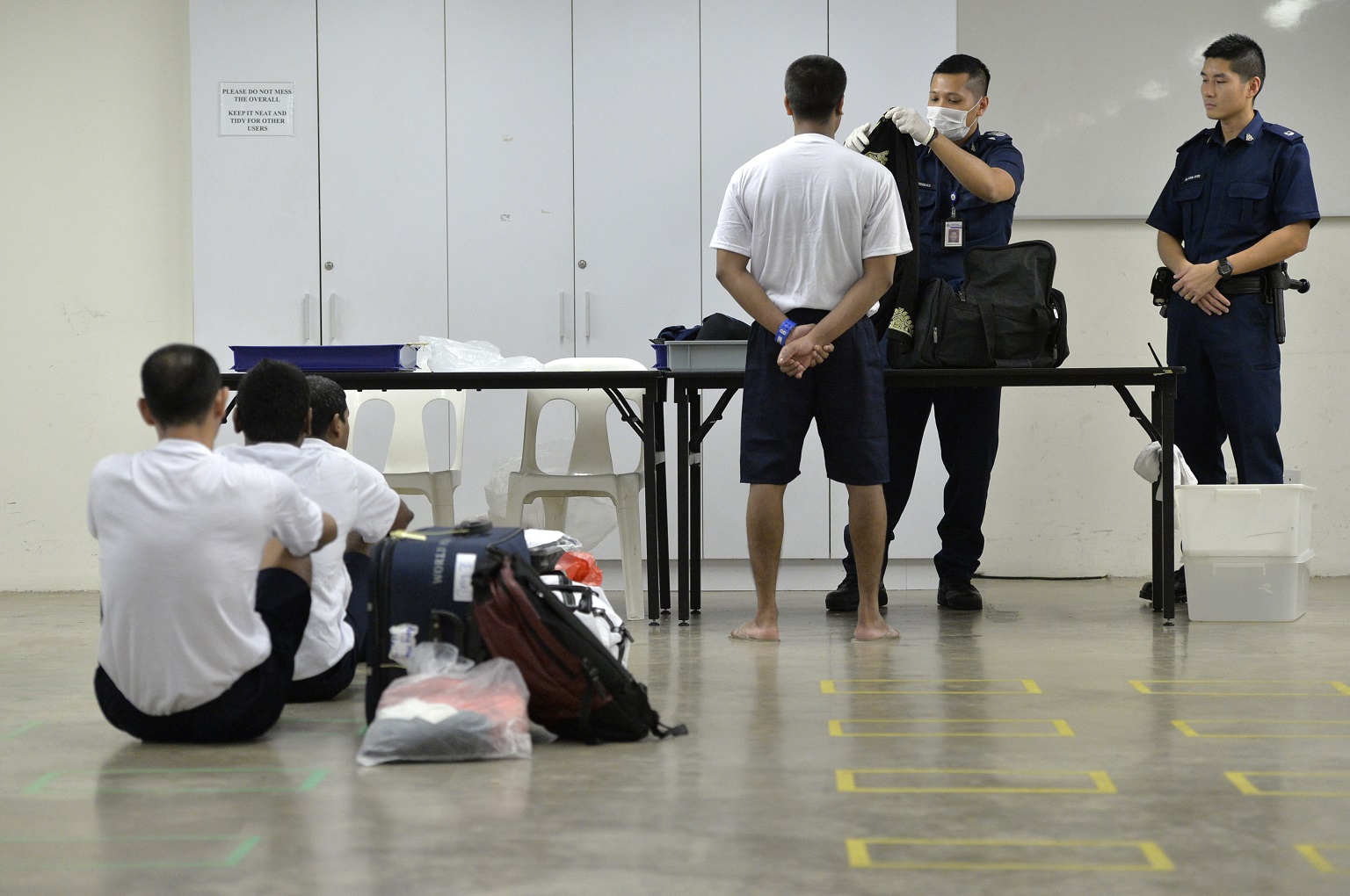Parliament: Workers' Party opposes Bill to amend criminal detention law, calls changes unnecessary, troubling and premature
Sign up now: Get ST's newsletters delivered to your inbox

The amended Criminal Law (Temporary Provisions) Act allows the Minister of Home Affairs to detain and supervise individuals without trial.
PHOTO: ST FILE
SINGAPORE - The Workers' Party on Tuesday (Feb 6) opposed changes to a law that allows the Minister of Home Affairs to detain and supervise individuals without trial.
Its MPs questioned the necessity of amending the Criminal Law (Temporary Provisions) Act (CLTPA), and called the move troubling and premature.
Aljunied GRC MPs Sylvia Lim and Pritam Singh, and Non-Constituency MP Dennis Tan - all lawyers - voiced the party's dissent during a four-hour long debate over the Bill to amend the Act.
They contended that the amendments would curtail judicial oversight, increase the Home Affairs Minister's powers and expand the reach of the Act beyond its original intention of protecting Singapore's safety - contrary to Law and Home Affairs Minister K. Shanmugam's statement that the changes would define and limit the minister's powers.
Said Ms Lim: "During past renewals of this Act, the WP has accepted the uncomfortable compromise that this law entails on the constitutional right to freedom. We did not delight in taking this position, but did so with a heavy heart.
"This time, however, our view is that the government has gone too far."
Its five MPs and three NCMPs voted against the Bill, joined by Nominated MPs Kok Heng Leun and Azmoon Ahmad. Mr Chen Show Mao (Aljunied GRC) was not present during the vote.
The WP MPs took issue with a new clause stating that the minister's decision to detain or supervise a person - in the interest of public safety, peace and good order - is final.
Mr Singh said this "finality clause" limits judicial review as it stops judges from probing into the facts of the case.
He added: "The evolution of the law on judicial review has required judges to make more, not less, enquiries on the facts and circumstances of a matter at hand... It would appear intuitively logical for judges to have maximum access to the minister's or executive's thought processes even if they cannot replace it with their own."
Mr Tan said the clause removes the right for detainees to ask whether the "minister was right" in deciding to associate them with the offences under the act, and to be detained or subject to police supervision.
"I am concerned that, once passed, a minister's decision on these aspects of his order can no longer be challenged in court, even if (it) exceeds the scope of his powers," he said.
Ms Lim pointed out that no minister has sought a finality clause on his detention order for more than 60 years.
"We find this very troubling," she said.
In 2015, alleged match-fixing kingpin Dan Tan was released after a two-year detention under the Act, after a Court of Appeal had found that his alleged involvement in global match-fixing did not threaten public safety here. He was subsequently rearrested.
Referring to the apex court's decision, Mr Shanmugam said the clause reflects the views of the court, which accepted that Parliament can entrust the power and responsibility of a decision under CLTPA to the Home Affairs Minister.
In so doing, it also accepted that the courts cannot replace the views of the minister and scrutinise the facts of the detention order, he said.
During the debate, Mr Shanmugam reiterated multiple times that the clause does not "oust" judicial review.
Ms Lim also objected to the addition of a Fourth Schedule, which prescribed a list of offences under the CLTPA's ambit to include those covered by the Organised Crime Act (OCA). This is the first time that crimes under the CLTPA are clearly defined.
She disagreed with Mr Shanmugam that the schedule limited the minister's powers, arguing that it achieves the opposite effect instead.
The OCA covers offences such as fraud and illegal gambling, which should not require detention without trial, she noted.
As it also includes offences that are conducted overseas, she said the CLTPA would cover transnational crimes as well - which goes against the Act's intention to target offences that threaten public safety, peace and order within Singapore.
Said Ms Lim: "In effect, the Bill makes the minister a global policeman, with no equal in the world. This is a position too arrogant for this House to support."
She also said it is "premature" to renew the CLTPA now, given that the previous two renewals in 2009 and 2014 were debated between one and eight months of its expiry date.
In the current five-year cycle, the Act expires in 20 months' time, in October 2019.
"WP would have been prepared to support the renewal if not for these changes (to the CLTPA)," Ms Lim said.


